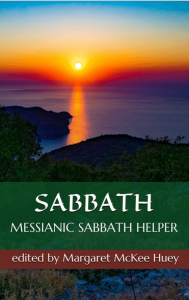
Joia de Jong via Unsplash

The instruction to remember the Sabbath is the Fourth of the Ten Commandments: “Remember the sabbath day, to keep it holy. Six days you shall labor and do all your work, but the seventh day is a sabbath of the Lord your God; in it you shall not do any work” (Exodus 20:8-10a). The seventh-day Sabbath or Shabbat is widely associated with God’s creation of the world (Genesis 2:2-3) and the Exodus of Ancient Israel from Egypt (Deuteronomy 15:15). The Sabbath is one of the Torah’s moedim or appointed times (Leviticus 23:3). Desecration of the Sabbath actually brought judgment to Ancient Israel (Jeremiah 17:19-27), but blessings are offered to those who value and honor Shabbat (Isaiah 56:1-8), with a universal observance for the entire world anticipated in the Messianic Age (Isaiah 66:23).
Today’s Messianic movement is different from evangelical Christianity, in that while it affirms the Messiahship of Yeshua (Jesus) of Nazareth, it continues to observe the seventh-day Sabbath along with Judaism, in fidelity to the Torah or Law of Moses, and in conjunction with the example of the First Century Believers. Certainly, holding services on the seventh-day (commonly called Saturday), can be viewed as appropriate for a faith community identifying with the Jewish Synagogue, but it also raises many questions. Inquiries abound pertaining to the ongoing validity of the Sabbath in the post-resurrection era. Was not the Sabbath transferred to Sunday, in honor of the Messiah’s being raised from the dead? Was the Sabbath actually abolished by the Messiah? Inquiries abound pertaining to the observance of the Sabbath. Should not the Sabbath be kept according to the Scriptures only? Should not mainstream Jewish tradition and custom play some role in honoring the Sabbath? What does it mean to not “work” on Shabbat?
The Messianic Sabbath Helper includes a wide breadth of material, addressing a wide array of topics associated with Shabbat. This publication has been divided up into two main parts: The Significance of Shabbat and A Theology of Shabbat. You will be able to detect a progression of sorts, in our family’s own approach to the subject matter, as some things are addressed first more generally and then more specifically. In our experience, we ourselves have certainly had to move from a more elementary view of the issue of the seventh-day Sabbath, to a more developed view, and we recognize how the Messianic community needs to do the same.
This is a massive collection of material, well needed for every Messianic home and congregational library!
804 pages
